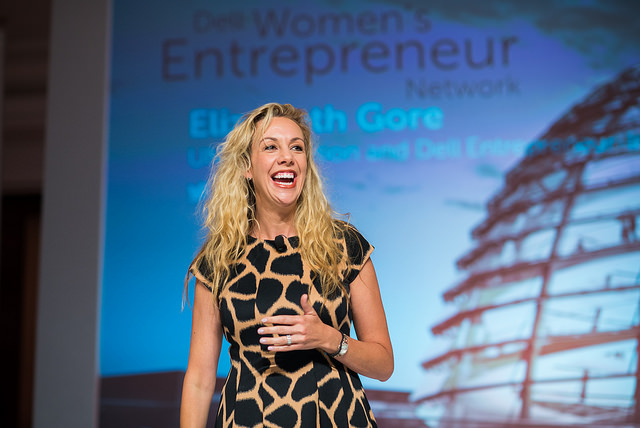The UK has topped Dell’s Global Scorecard for offering “access to resources” for women entrepreneurs, including education, the internet, SME training and banking services.
In the UK, the research found that 100% of women have access to a bank account, along with 87% who can get online.
Pakistan, which came bottom in this area, sees just 10% of women accessing the internet, with just 3% using bank accounts.
The UK also sends all of its women into secondary education.
The study, unveiled at Dell’s Women’s Entrepreneur Network event, looked at 70% of the world’s female population across 31 countries across five key areas: business environment, access to resources, leadership and rights, pipeline for female entrepreneurship and potential for high-growth, women-owned businesses.
The US topped the index overall but more than 70% of the countries analysed scored below 50%, demonstrating a significant growth gap between female and male-owned businesses worldwide. The UK comes in fifth, beaten in Europe by Sweden.
Dr Ruta Aidis, project director of the Global Women Entrepreneur Leaders Scorecard and fellow of George Mason University in Washington DC, said one of the key challenges for measuring women’s entrepreneurship is the lack of data.
Chile is the only country that routinely collects this kind of information, but, in spite of this, Aidis noted that “no more than 20%” of entrepreneurs working in its capital are women.
Mexico, meanwhile, has an accreditation scheme for all of its startup incubators, meaning it can keep track of the numbers of men and women who are accessing these kinds of programmes.
She called the EU a “secret weapon” because of its focus on gender equality targets.
Nigeria was found to have the least helpful business environment for female entrepreneurs, but topped the ‘pipeline’ index, demonstrating that Nigerian women don’t appear to be fazed by the gender challenges they face.
“In more developed nations, the image of a successful entrepreneur is still by and large male,” Aidis said.
Dell’s entrepreneur in residence Elizabeth Gore is lobbying the UN for entrepreneurship to be listed as one of its 17 global development goals, which are being decided in September.
She met with Ban Ki-moon, along with the heads of tech companies like Uber, Intel and Linkedin, to discuss the “globe’s business plan”.
“This is about ensuring free and equal work for all through job creation and entrepreneurship,” Gore said. “We believe entrepreneurship is the thread that could actually solve all of the UN’s development goals.
“It’s policies that are needed to help this scale, with each country creating its own local geographical roadmap,” she added. “And if we don’t set goals like this, whether they are successful or they fail, we wouldn’t be able to understand how we’re doing.”
She is asking business people to sign their name to the Entrepreneurs Unite campaign ahead of the negotiations.
Dell’s 2015 Global Scorecard study was audited by the European Commission’s Joint Research Centre.

